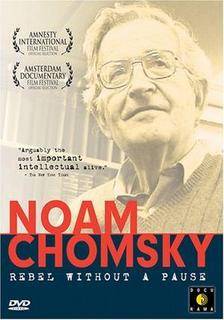What do you get when you add lots of coffee to one book and two movies?




It turns out that you keep awake, watch more movies, read more books (hopefully work more in between) and drink even more coffee. A week of trying to meet a self imposed deadline resulted in hyperkafemia (word play on hyperkalemia...my own contribution to the world of medicine). As is usual with me, I take breaks from work with books or movies. This time, the movies were
Star Wars IV (I think I have watched it more number of times than seven samurai by now) and the newly released
Serenity (if you haven't seen it yet, you should...where else can you watch a psychic girl kick ass with style). The book was the
Future of Freedom by Fareed Zakharia. The book is a nice read if you like somewhat weighty stuff. It does a good job of talking about the role of constitution in democracy and it documents the rise of illiberal democracy.
The book starts with an interesting historical note about the separation of church and state. Apparently the first time that concept came about was when the holy Roman Emperor left Rome for Constantinople (moved his entire capital) leaving only one guy behind: the Bishop of Rome or the Pope. This physical separation was the first impetus for the two to get out of each other's way and grow separately for many centuries. Then it goes on to differentiate between the romantic French equality, fraternity etc type of democracy and the initially elitist Anglo/American keep the government out of my hair democracy. Fareed makes a valid point that the French system invariably failed (France got its first real democracy after Hitler was driven out and its former colonies, except Pondicherry, are still mired in shit) while the British system which relied on the equally abstract but more enforceable concept of fairness and legality succeeded not only in England but also in its colonies (US and India being prime examples though for entirely different reasons). Other arguments about the relationship between per capita income and the chances of a successful democracy seem plausible.
However, one senses Fareed trying to romanticize the kind of democracy and society prevalent in the 1950s or 1960s with limited democracy (meaning no primaries and most governmental bodies like political parties not being democratic in themselves). He repeatedly cites the increasing "democracy" of society and social institutions as reasons for public ills (e.g. Fareed moans the disappearance of elites/experts in various fields and the reliance on people participation). Its easy to agree with his viewpoint in this age of FEMA being led by a non-expert and "Brownie, you are doing a heck of a job". But it must be remembered that Bush is a whole different level of incompetence. Instead of accepting larger citizen participation as a gift and recommending how such interest can be channeled for overall better governance, Mr.Zakharia falls into the trap of finding fault with the democratizing of everyday institutions.
Too much coffee also made me think of a weird connection between the book and the two movies. In all three, the democratic forces (Senate in
Star Wars, the parliament in
Serenity and American society and its ever expanding quest to ask the people what they want in
Future of freedom) are the bad guys. Given how easy (and correct?) it was to support Luke and Leia in Star Wars and Malcolm, River Tam and company in Serenity, it wont be surprising if Fareed finds lots of support for his cause of making democracy safe for this world by lowering our appetite for democracy.






